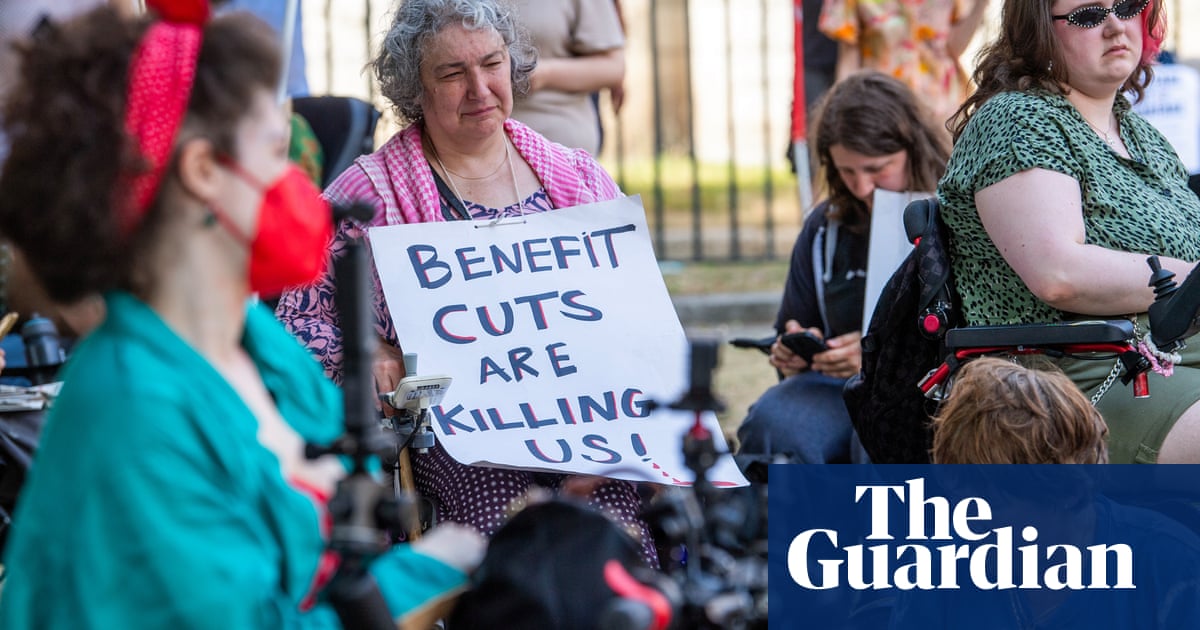As Labour officials sounded warnings to Downing Street last month about the scale ofthe rebellionagainst the government’s welfare bill, one concern was particularly stark: many of the supposedly loyal 2024 intake were among the rebels.
Officials were told not to worry, however, sources have told the Guardian. Many of those MPs had been personally selected at the general election by Morgan McSweeney and other senior advisers toKeir Starmer.
The “Starmtroopers”, as they had come to be known, could be talked down with a simple phone call.
This week’s dramatic events in the Commons, when ministers had to gut their own bill less than two hours before a vote when confronted with a widespread and sustained rebellion, have proved the folly of making assumptions about the class of 2024.
Far from being blindly loyal, these 243 MPs have proved in their first year to be a diverse, wilful and occasionally troublesome group to manage.
“We are showing ourselves to be slightly less controllable by the party than people would have thought,” said one.
Another added: “They are finding out we are capable of independent thought, because many of us have actually lived a life beforehand. We are not just lobby fodder [MPs who have little role but to vote as they are told].”
Among the newLabourMPs were Chris Ward, Starmer’s former chief of staff, who is now his parliamentary aide; Georgia Gould, the former head of Starmer’s local Camden council, and Josh Simons, the former head of the Starmerite thinktank Labour Together, who did all vote for the bill on Tuesday.
Several were selected late in the day, leading to accusations that the leadership was “parachuting in” its favoured candidates before local activists could object. They included Torsten Bell, the former head of the Resolution Foundation thinktank, and Luke Akehurst, a member of Labour’s governing national executive committee.
But several of the new intake have participated, or even spearheaded, rebellions against the government in their first 12 months. Chris Hinchliff, the MP for North East Hertfordshire,led a rebellionagainst the planning bill. His colleague Neil Duncan-Jordan,organised oneagainst the cuts to winter fuel payments.
Duncan-Jordan is emblematic of a particular sort of new MP: the33 “bonus” Labour MPswho were not expected to win their seats and are proving difficult to whip.
This was abundantly clear during this week’s standoff between the government and backbenchers.
Out of the 126 signatories to the first reasoned amendment, which would have put the bill on pause indefinitely, 70 were newly elected MPs. They included Yuan Yang, the former Financial Times journalist, and Polly Billington, who advised Ed Miliband when he was Labour leader.
“The Starmtrooper stuff was completely insane,” said one former Labour adviser who was close to the selection process. “These are a clever, impressive group of people. But with that comes independent thought.”
Labour insiders say there are several reasons this intake of MPs is proving trickier to manage than expected. Beyond the bonus MPs, many of whom were not carefully vetted, there is a far larger group of members who have brought with them expertise from various sectors of society and are unwilling to act against the interests of those they used to represent.
Marie Tidball, for example, introduced Starmer on stage at the Labour conference in 2023. But as a disabled MP and long-term campaigner for disability rights, she was unwilling to vote for the welfare bill, and gave one of the most powerful speeches in the Commons against it.
Others say Downing Street has been poor at giving roles to MPs who might be newly elected but are often experienced in politics or other fields. “I’m a campaigner,” said one. “But I’ve not been given any campaigning to do. I’ve had to invent my own local campaigns to run.”
The truculence of the new intake is causing irritation for some in the party.
One new MP who has remained loyal to the leadership said: “There is a lot of political naivety here. They don’t understand that a year after a historic victory, we shouldn’t be undermining the leadership that helped get them elected.”
Another Starmer ally said: “This group hasn’t had to vote on a war yet, or see one of their colleagues killed.”
Some round the prime minister are worried that this group of MPs now has a taste for rebellion and will do it again in the future. Several are now sounding the alarm about their concerns relating toproposed changesto special educational needs, which are due to be published in the autumn.
Others believe the experience of the last week might have had the opposite effect, and scared many off trying the same tactics again.
“At times it felt like we came close to toppling the government,” said one new MP. “We won’t try that again in a hurry.”
